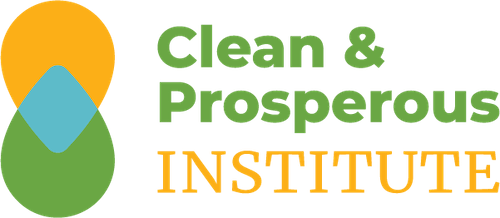California’s Companies are Thriving in a Low-Carbon Economy
Lesson # 6: Clean fuels are cleaning CA’s air
Clean & Prosperous Institute led our second study mission to California earlier this summer, which took us from Sacramento to San Francisco to Silicon Valley. We learned so much from briefings and site tours that we want to continue sharing highlights here. (If you missed Lesson #1, about dairy digesters, click HERE. If you missed Lesson #2, about reducing emissions in overburdened communities, click HERE. If you missed Lesson #3, about how public investments from carbon revenues are catalyzing private sector innovation and investment, click HERE. If you missed Lesson #4, about how we can accelerate the adoption of EVs, click HERE. If you missed Lesson #5, about battery innovations, click HERE.)
What we learned
Last year Washington state passed a Clean Fuel Standard that requires fuel providers to reduce the carbon intensity of transportation fuels to 20% below 2017 levels by 2038. California passed its clean fuel standards in 2009 with implementation in 2011.
Tim Zenk, President of Molecule, who attended the study mission, said California is achieving quantifiable climate and economic benefits from its Clean Fuels Program and Washington should expect the same outcomes.
“Clean fuels standards work to cost-effectively reduce climate pollution and give consumers affordable ways through new clean transportation fuels to take action on climate.”
Over the last 12 years, with both a Clean Fuel Standard and a Cap-and-Trade program, California’s GDP grew 115% while emissions leveled off to rise less than 4%. During this same period (without a clean fuels policy or a cap-and-trade system), Washington saw its emissions grow by 21% while GDP grew at a rate of 58%.

This figure shows the percent reduction in the carbon intensity (CI) of California’s transportation fuel pool. The LCFS target is to achieve a 20% reduction by 2030 by setting a declining annual target, or compliance standard. –CARB
As Washington implements our Clean Fuel Standard, we can expect similar environmental and economic benefits. Today, Washington is exporting billions of dollars each year on transportation fuels. As we transition to locally produced biofuels, renewable electricity and green hydrogen, we will clean our air and fight climate change while we grow our transportation fuel supply chain.
Companies like Promus Energy, REG and SeQuential Biofuels are already using local feedstocks to reduce the carbon intensity of transportation fuels. Large investments into renewable diesel production along the west coast are on the horizon.
Having a Clean Fuels Standard in Washington will keep those low-carbon fuels here in the state, many of which also will help reduce diesel particulate pollution. California’s decade-long experience with its Clean Fuel Standard shows that the policy is effective and that the market will adapt to provide lower carbon and lower polluting transportation fuels.

